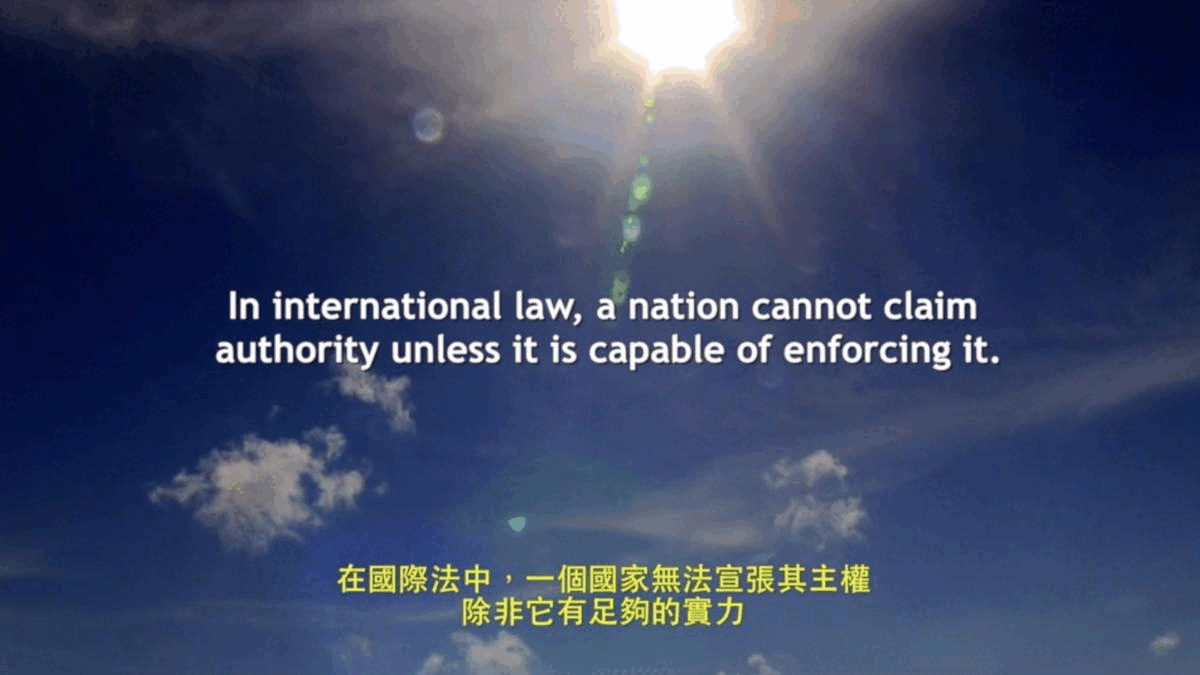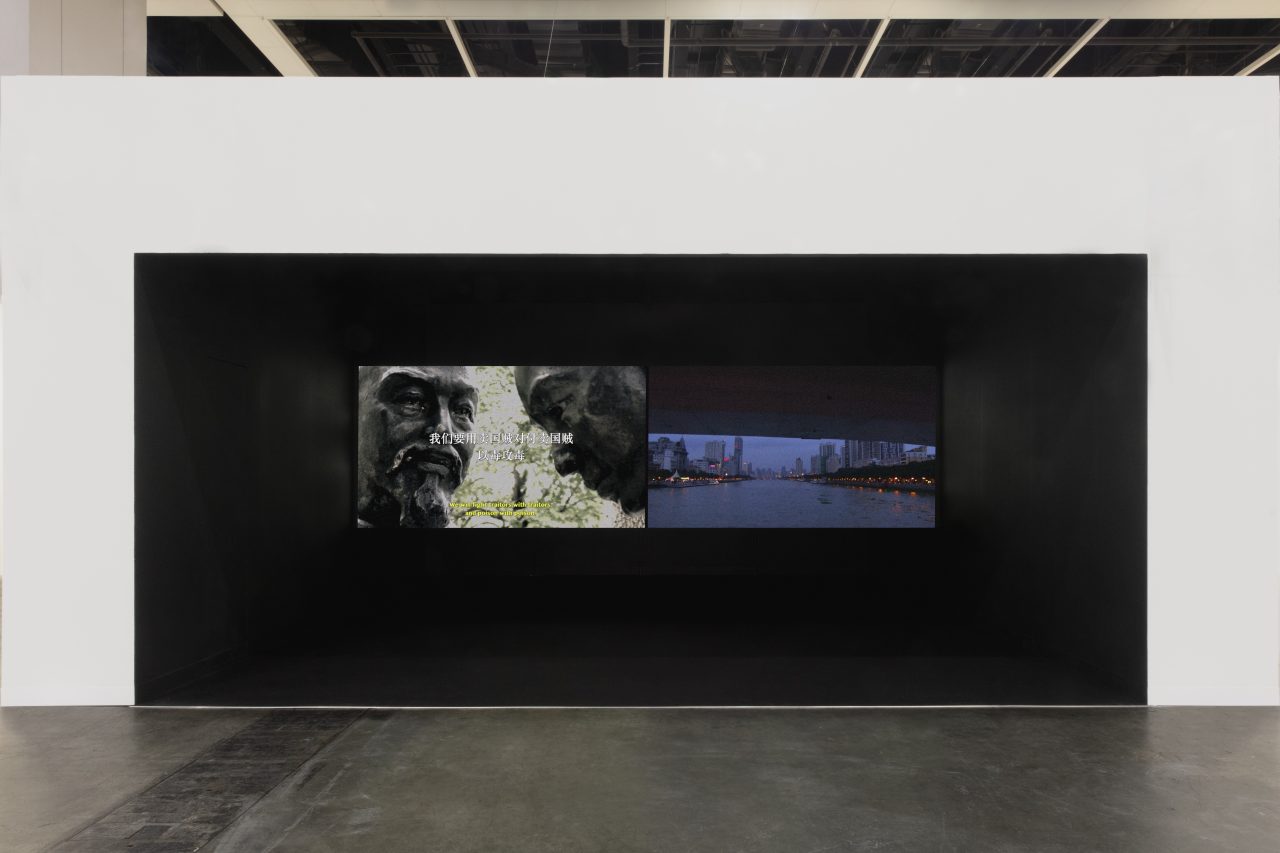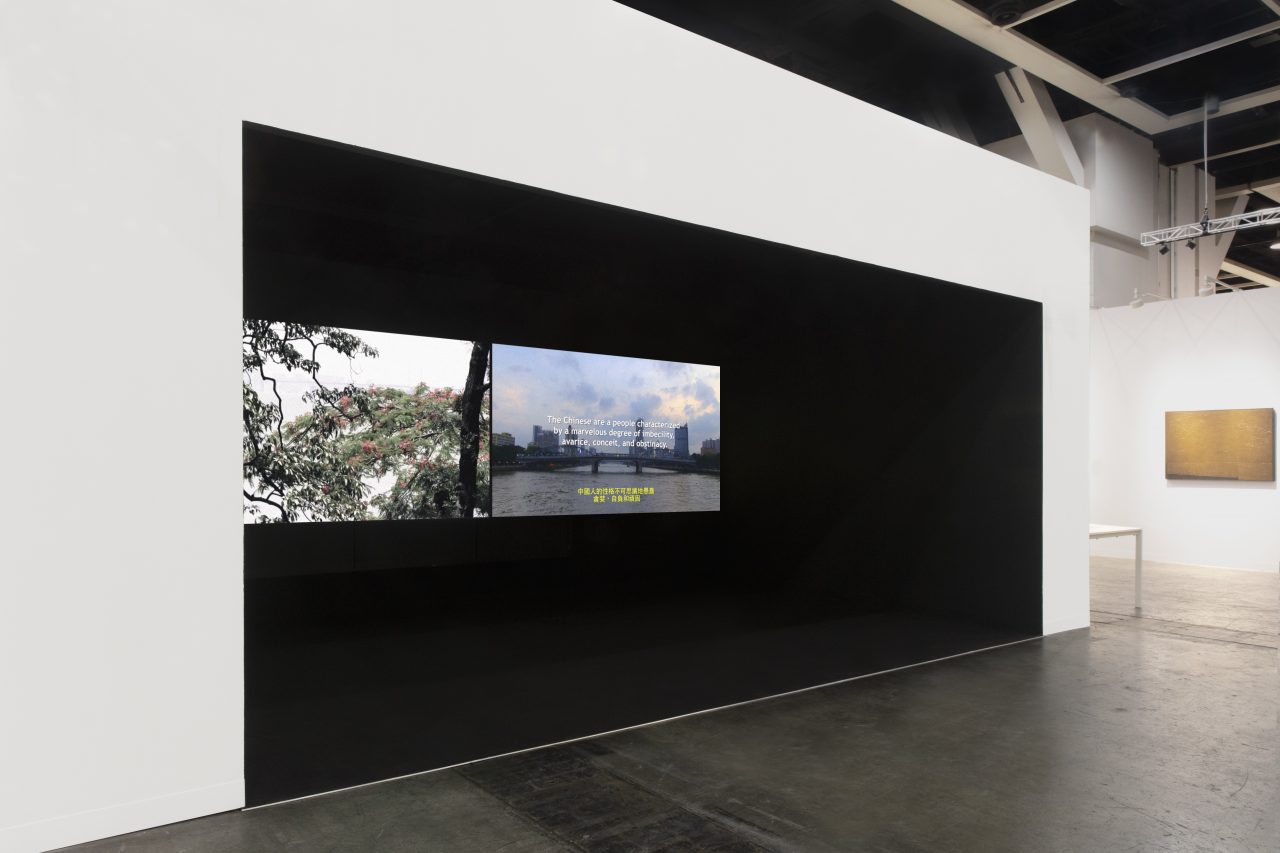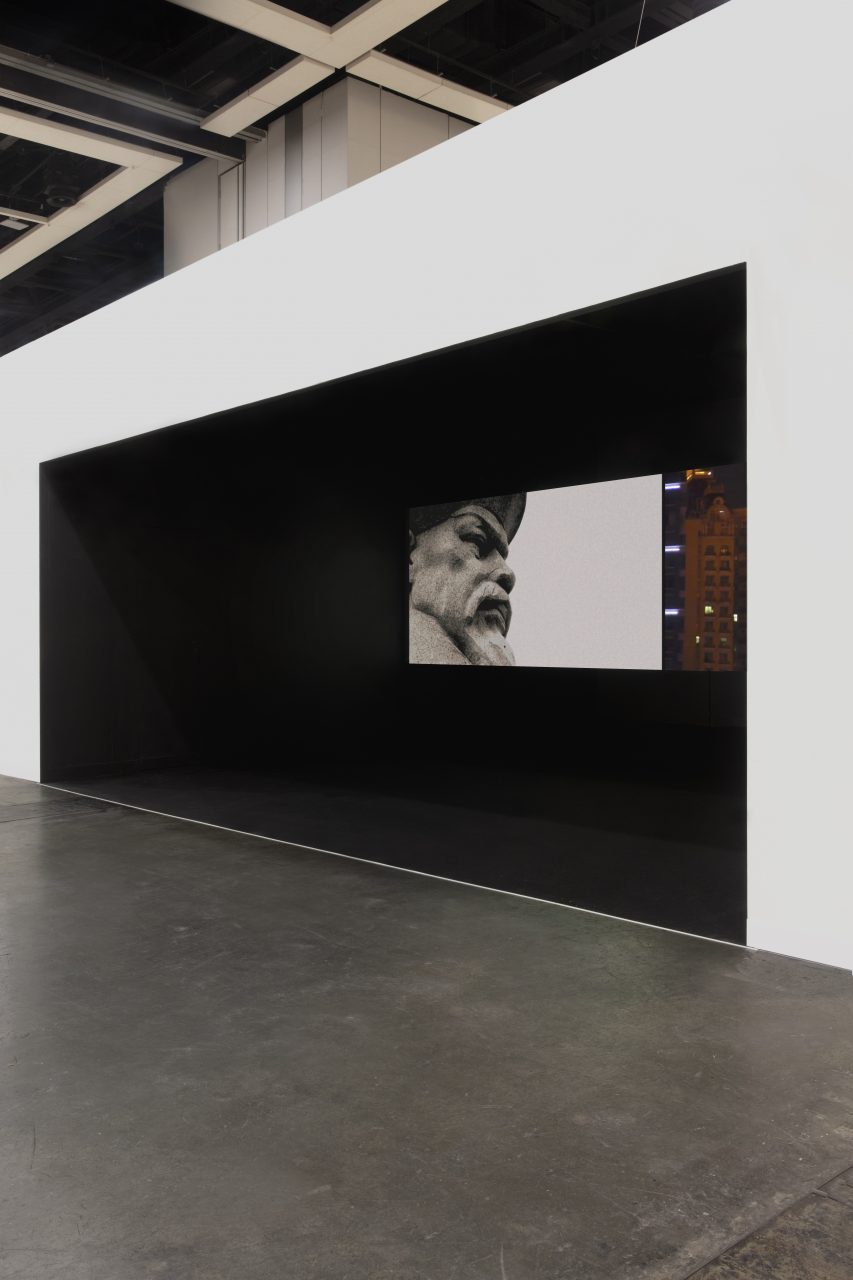Art Basel Hong Kong
James T. Hong

James T. Hong, Three Arguments about the Opium War (2015), selected stills.

Installation view of Three Arguments about the Opium War, 2015, Empty Gallery at Art Basel Hong Kong, 2022

Installation view of Three Arguments about the Opium War, 2015, Empty Gallery at Art Basel Hong Kong, 2022

Installation view of Three Arguments about the Opium War, 2015, Empty Gallery at Art Basel Hong Kong, 2022
Philosopher-filmmaker James T. Hong’s Three Arguments about the Opium War (2015) is a trenchant inquiry into the contradictory logics and competing narratives which constitute recent East Asian history — and the ways in which these discursive formations continue to determine the course of present-day politics — articulated through the genre of the landscape film.
Drawing on archival research and primary source documents surrounding the titular conflict — including statements by prominent Chinese and British figures — Hong utilizes the formal interplay between multi-channel video and textual intertitles to stage a virtual confrontation between British and Chinese ideologues. Dueling pronouncements such as “it was an instructive war that taught China how to fall in line with civilized European trading norms” and “the entire rise of the West from 1500 to 1900 depended on drug trafficking” are superimposed over footage of present-day Hong Kong — flickering in and out of the viewer’s consciousness over a series of beautifully composed tableaux of the city. While it may seem that there are only two arguments being presented — instead of the titular three — Hong’s third argument resides in the space of tension and contradiction generated by the clash between these competing elements, and their elevation into the landscape of contemporary life.
The film’s right-channel (Britain) telegraphs a kind of stately detachment and omniscience — languorous tracking shots surveying the successfully modernized skyline of Asia’s World City from the safety and mobility of the harbor. The left-channel (China) dwells in a kind of stasis, the camera’s gaze lingering on the decaying surfaces of one defunct site of national humiliation — empty military camps, bunkers, war memorials — before lurching on to another. An object lesson in artifice: cinematographic style as an expression of “national character”.
These images are accompanied by an ominous, low-toned pulse that never escalates in volume but lures the listener into a state of transcendent fixation — perhaps a reference to the somatic effects of opium as romanticized by such figures as Thomas De Quincy — or the amnesiac haze of the modern citizen. In this way, the film’s cumulative effect is one of subtly mounting unease, in which the antagonistic discourses of Western (and Eastern) imperialism gradually begin to seem less like dusty historical artifacts and more like contemporary attitudes. Far from indulging in historical excavation as academic exercise or archival fetishism, Three Arguments seems to suggest the terrifying notion that the supposedly historical does not pass, but rather persists, and that the poisonous dynamic of mutual contempt, suspicion, and exploitation between China and the West is still alive and well.